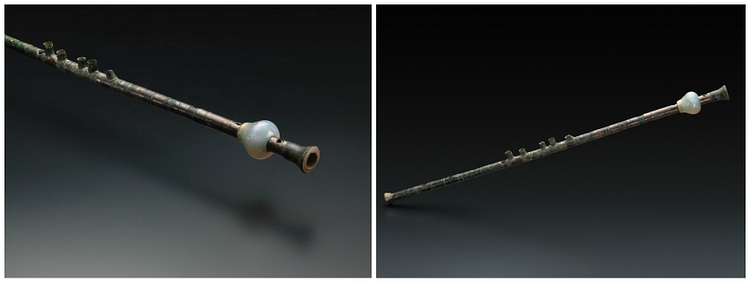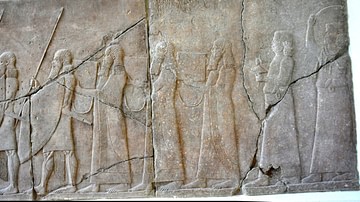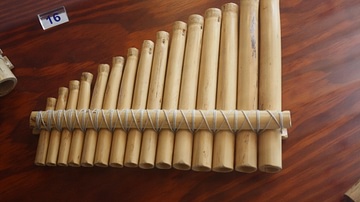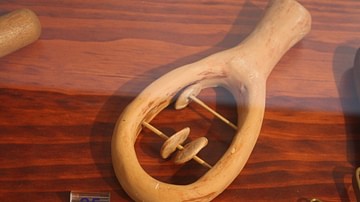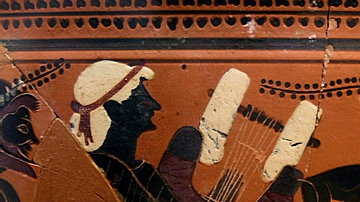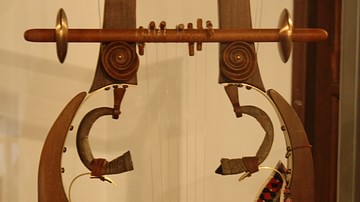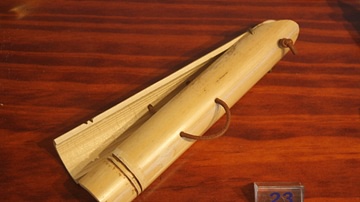Illustration
"The tibia was sounded with a double reed, and two pipes would have been played simultaneously. The small tubes or chimneys projecting from the side of this instrument and the rings encircling its body were likely part of a complex mechanical system designed to increase the number of notes and modal scales that could be played on a single instrument.
Often played in pairs, tibia were widespread throughout the Mediterranean world. They varied in length and construction and were used in many contexts: funerals, sacrificial rites, banquets, boxing matches, marriages and games."
Late Roman, Syrian, ca. 1–500 CE.
Length 58.6cm.
Made of ivory, silver, chalcedony.
New York Metropolitan Museum of Art.
Cite This Work
APA Style
Art, N. Y. M. M. o. (2015, April 16). Tibia. World History Encyclopedia. Retrieved from https://www.worldhistory.org/image/3812/tibia/
Chicago Style
Art, New York Metropolitan Museum of. "Tibia." World History Encyclopedia. Last modified April 16, 2015. https://www.worldhistory.org/image/3812/tibia/.
MLA Style
Art, New York Metropolitan Museum of. "Tibia." World History Encyclopedia. World History Encyclopedia, 16 Apr 2015. Web. 19 Apr 2024.
